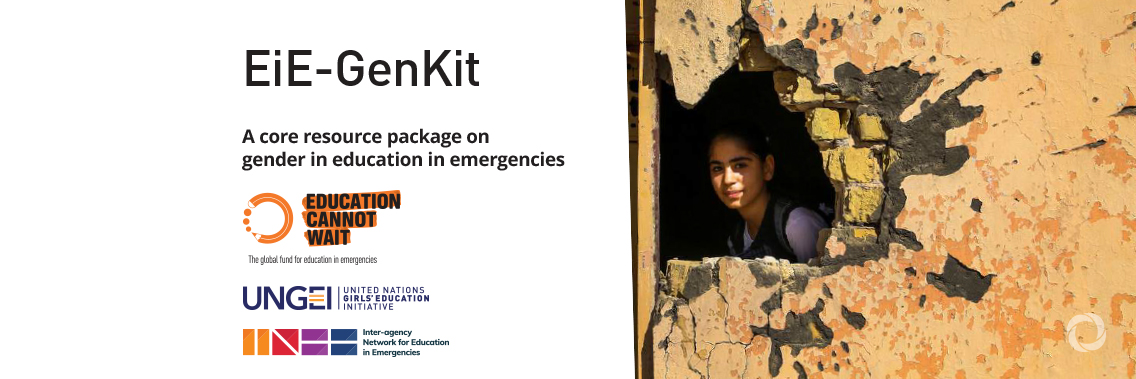Education Cannot Wait (ECW), the Inter-agency Network for Education in Emergencies (INEE), and the United Nations Girls’ Education Initiative (UNGEI), launched a new toolkit to support stronger integration of gender equality in education responses for children and youth in countries affected by emergencies and protracted crises.
Armed conflicts, forced displacement, climate-induced disasters, health emergencies, and other crises increase barriers to safe, quality education, especially for vulnerable children and youth. Girls, boys, women, and men experience these barriers to education in different ways, resulting in an exacerbation of pre-existing gender inequalities and vulnerabilities. This is especially true during the COVID-19 pandemic which continues to cause unprecedented disruptions to learning worldwide for millions of crisis-affected girls and boys.
“As the world strives to address and recover from global impacts of the COVID-19 pandemic, we must apply lessons learnt from previous crises. We know the tragic hardship that looms ahead for millions of girls and other vulnerable children and youth living in crisis settings. We can’t say we did not know. Unless we protect and empower them urgently with the safety, hope and opportunity of quality, inclusive education, we will have failed both them and ourselves. There is no excuse not to act now,” said Yasmine Sherif, Director of Education Cannot Wait, the global fund for education in emergencies and protracted crises.
In launching organizations appeal to all education stakeholders to join in putting gender equality at the centre of collective emergency response to the pandemic.
Previous health emergencies, like Ebola, Zika and SARS, led to school closures which disproportionately affected girls and women. In crises, adolescent girls are particularly vulnerable and face increased risks of sexual exploitation, gender-based violence, child marriage, and early pregnancy. This is proving to be the case with the COVID-19 pandemic. Analysis conducted by UNHCR and the Malala Fund already shows that 50 percent of refugee girls in secondary school may not ever return when their classrooms open. This is why the new ‘EiE-GenKit’ comes as a timely, ground-breaking resource for aid practitioners to ensure education in emergencies interventions are both gender-responsive and inclusive.
When gender-responsive, quality, inclusive education is available to all – including crisis-affected girls and boys – it has the potential to transform children’s futures, build up societies and lead to sustainable peace. The ‘EiE-GenKit’ equips education practitioners with the tools to achieve that vision.
The ‘EiE-GenKit’ was developed over two years through an extensive consultation process involving the review of over 150 existing education in emergencies and gender resources, with contributions from over 80 global, regional, and country-level gender and EiE experts and other stakeholders.
Original source: Education Cannot Wait

